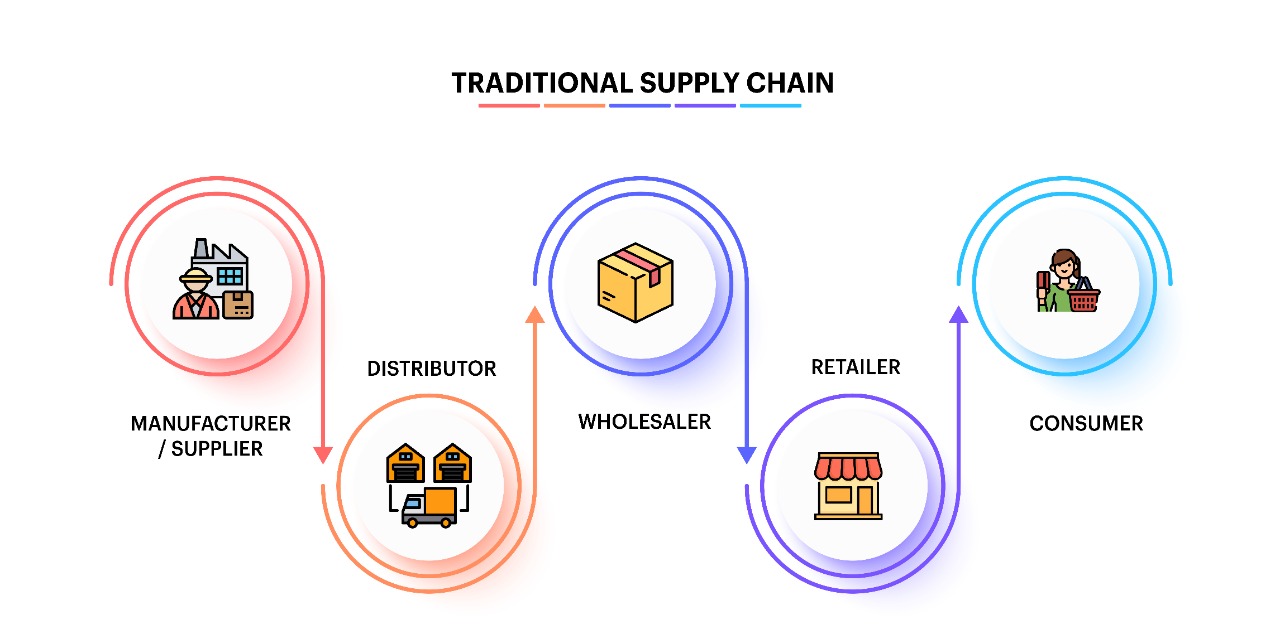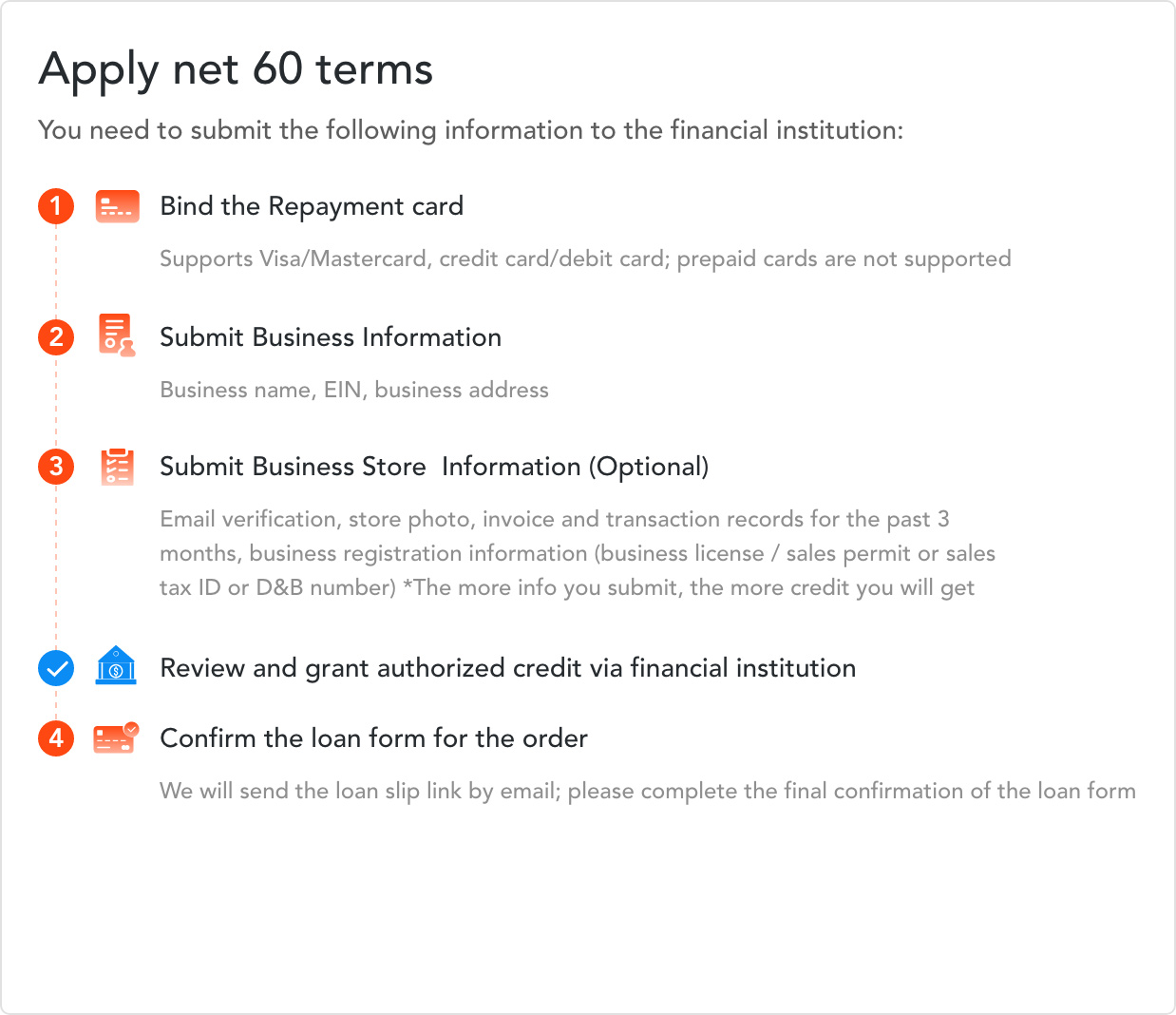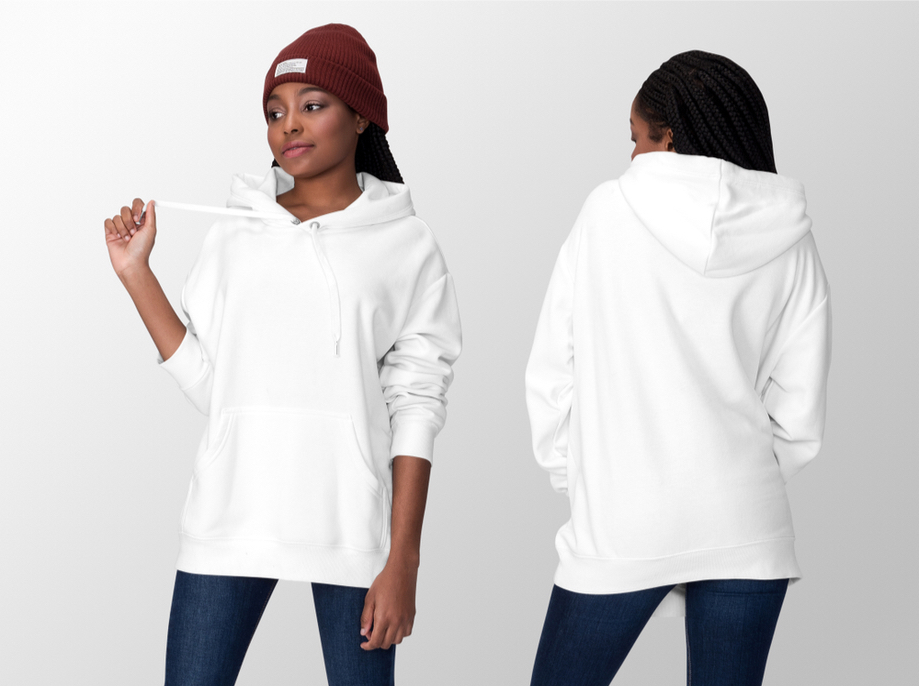
Wholesale involves the buying of goods in large quantities and then selling those products to other businesses, or entities who are not the end user.
All About Wholesale
What is the Definition of Wholesale?
According to Investopedia, wholesaling is defined as the act of buying goods in bulk from a manufacturer at a discounted price and selling them to a retailer for a higher price, for them to repackage and resell in smaller quantities at an even higher price to consumers. When large quantities are purchased at a discounted rate, the wholesale company is able to offer discounts to retailers. Then, the retailer sets a price that reflects the overall cost of doing business.
Another definition of wholesale refers to businesses that produce their own products and sell them directly to retailers, who then sell products to the end user. This second option has been popularized by wholesale marketplaces.
How are Wholesale Goods Distributed?
A wholesale company purchases goods from a distributor, and then passes them to a retailer to be sold to end-users. The goods that wholesale suppliers provide come from a variety of sourcing methods. Wholesale companies constantly look for trending products to supply the most up-to-date goods for retailers. When a trend is identified, wholesale professionals will research and source the most cost-efficient and high quality products, choosing from several manufacturers and distributors. Wholesale operators then supply the selected products to retail organizations for consumer purchase.
Benefits of Wholesale
Wholesale trade is growing in the U.S. every single year, and for good reason. Research shows that the US annualized market size growth between 2017–2022 was almost 4% every year. Buying products in bulk from a wholesaler is a smart business model for many reasons.
- Cost efficiency - Wholesale companies offer discounts for retailers who buy in bulk. That means you can get products for less while selling them for more - which leads to impressive profit margin. Furthermore, retailers can often get an edge over competition by buying and selling in higher volumes.
- Creating a network of suppliers - To make sure a business runs properly, wholesalers need to ensure that deliveries are on time, products meet a high standard of quality, and relationships are nurtured. That means that supplier relationships are positive and well-maintained. Developing this network of suppliers and manufacturers is an important part of a wholesale business.
- Gaining expertise - The more you buy and sell in a certain market, the more familiar you’ll become with the field. Whether you are selling candles and home decor, or specialty eco-friendly products, you will gain knowledge that helps your customers to trust you. The more you know, the better you can entice people to come to your website. You can also learn better ways to communicate your messaging to your audience.
- Expand with ease - As you develop a better foothold in your industry, you’ll build connections with others in the industry. Those connections can lead to cross-selling or upselling opportunities that can help your business to grow. Since you’ve already established your brand, you can focus on establishing relationships and trying new ventures. As you set up new ideas, they will be simpler to set up and scale.
Discover Best seller wholesale products
Types of Wholesale
The wholesale landscape isn’t always an easy one to navigate. Some companies work independently, while others work closely with certain producers. Generally, wholesale businesses fall into one of three categories. The common types of wholesale organizations are:
- Merchant wholesalers - The most common of wholesale business types, these wholesalers operate by purchasing larger volumes of products which they sell in smaller quantities for a slightly higher price. These companies do not make their own products. However, they have a deep expertise of products in order to know the correct time to start selling them to retail businesses in other industries
- Brokers - This company (or individual) doesn’t own the products being sold. They act as an intermediary between a wholesale operator and their client base. The broker is responsible for negotiating the best deal between the two parties. Their income is based on a sales commission structure.
- Sales and distribution - Sometimes a manufacturer hires people to actively represent them to wholesalers. This allows a manufacturer to reduce their reliance on wholesale businesses finding them first. In these cases, a manufacturer will contact wholesale operators to offer their products to them, creating wholesale deals that are tailored to specific cases.
What are the most popular wholesale product lines? Right now, premium wholesale offerings range from kids and baby products to home decor, jewelry, and electronics. The most commonly explored product categories are candles, pet products, women’s sweaters, and electronic accessories.
What is Wholesale Pricing?
Wholesale pricing refers to the price that a manufacturer will charge a company to order in bulk from them (usually a wholesale company). Since wholesale purchasing is done in bulk, wholesalers can typically experience significant discounts which makes it possible to make a profit through retail markup.
Retail markup refers to the pricing of wholesale products a retailer is charged for a product minus the wholesale price of the product. As an example, if a wholesale company buys 500 items for $2,000 total, then each product costs $4. The wholesaler may choose to sell these items to retailers in groups of 50 at $00 per 50 products. In that case, the price per product has increased to $8, leading to $4 per product in profit (or $2,000 for an entire shipment). This makes it easy to see why wholesale is profitable!

What are the Differences Between Distributors, Wholesalers, and Retailers
The supply chain is a complicated thing. By the time a product reaches its final consumer, it’s likely been through the hands of several middle-men. Wholesalers, distributors, and retailers all have a place in the supply chain - but they are different. Each organization has its own purpose and responsibility.
Distributor - This is an independent agent who enters into an agreement with a manufacturer to sell their products to wholesalers or retailers. Distributors are subject to limitations from manufacturers and are usually not allowed to sell competing brands or lines. Normally, distributors carry a significant stock of the products and can warehouse goods for up to a year. When a manufacturer is approached by a potential new buyer, they will do business with the chosen distributor that becomes their direct point of contact. It’s worth noting that the type of industry and agreement that’s put into place will dictate much of how distributors operate.
Wholesaler - A middleman of sorts, a wholesaler buys in bulk from a distributor and then resells to a retailer at wholesale prices. Most wholesalers specialize in certain lines or carry a wide range of products to suit various retailers in different industries. If a wholesaler only carries non-competing products, they are considered a distributor. In addition to breaking bulk orders down into smaller quantities, wholesalers can also assemble goods as part of the process. A wholesaler normally warehouses products for shorter periods of time compared to distributors, usually up to six months.
Retailer - A for-profit organization that sells directly to consumers for the purpose of consumption and not resale. In order to make a profit, this type of business must find wholesalers or distributors that sell the products they’re looking for in the right quantities (and at a good price). In most business models, retailers make their money by purchasing products from wholesalers in smaller quantities at wholesale prices and then reselling them at higher prices. The difference in pricing is profit that covers overhead like salaries, advertising, utility bills, etc.
Wholesale vs. Private Label
Private labeling is an option that allows savvy business owners to sell products online without investing in product development. This business model allows companies to create their own custom branded products by working with a third-party manufacturer. Using a private label is especially helpful for people or brands who already have an established audience and want to find new ways to make passive income by selling products online.
Simply put, private label products are created by one company with the intent of being sold by another company. A business owner who seeks private label products wants to find goods that they can put their own brand name on and sell as if it’s their own. Common industries for private label products are clothing, cosmetics, and condiments sold in grocery stores.
How does this compare to wholesale? The choice to sell wholesale or private label comes down to several factors like investment resources and long-term goals. Many experts agree that wholesale is a great way to get started, while private label offers more ways to scale. Remember that retailers using a private label are essentially manufacturing products under a specified brand name. More businesses are finding the appeal in creating and growing a unique brand rather than selling individual and unrelated products. Private label businesses will require more extensive product research, and need to focus more time on product differentiation. On the other hand, with private labels, retailers have more control over the product and brand.
Want to Learn More?
How do Net 60 terms work for wholesale?
Top 10 Wholesale Hoodies that Sell
5 Trending Private Label Products To Sell In 2022





